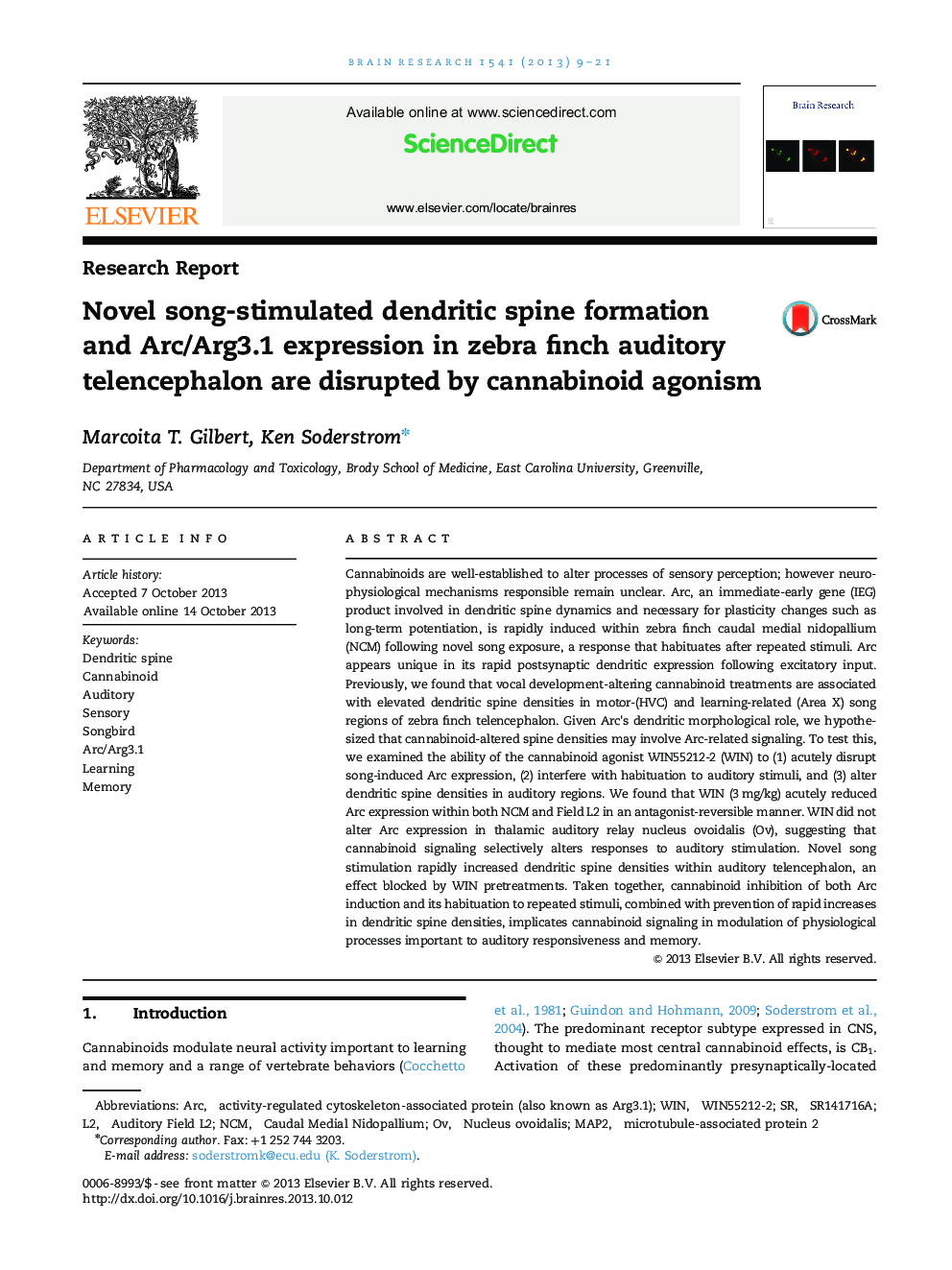| Article ID | Journal | Published Year | Pages | File Type |
|---|---|---|---|---|
| 4324451 | Brain Research | 2013 | 13 Pages |
•Arc is induced by novel song stimulation in a manner inhibited by CB1 activation.•Two-day WIN pretreatment prevents NCM habituation from occurring on day three.•CB1 effects on Arc expression were observed in high-order telencephalic regions and not within the thalamic auditory relay, Ov.•WIN-induced habituation prevention is reversed by a CB1-selective inverse agonist.•Spine density increases produced following novel song stimulation are also inhibited by cannabinoid treatments.
Cannabinoids are well-established to alter processes of sensory perception; however neurophysiological mechanisms responsible remain unclear. Arc, an immediate-early gene (IEG) product involved in dendritic spine dynamics and necessary for plasticity changes such as long-term potentiation, is rapidly induced within zebra finch caudal medial nidopallium (NCM) following novel song exposure, a response that habituates after repeated stimuli. Arc appears unique in its rapid postsynaptic dendritic expression following excitatory input. Previously, we found that vocal development-altering cannabinoid treatments are associated with elevated dendritic spine densities in motor-(HVC) and learning-related (Area X) song regions of zebra finch telencephalon. Given Arc's dendritic morphological role, we hypothesized that cannabinoid-altered spine densities may involve Arc-related signaling. To test this, we examined the ability of the cannabinoid agonist WIN55212-2 (WIN) to (1) acutely disrupt song-induced Arc expression, (2) interfere with habituation to auditory stimuli, and (3) alter dendritic spine densities in auditory regions. We found that WIN (3 mg/kg) acutely reduced Arc expression within both NCM and Field L2 in an antagonist-reversible manner. WIN did not alter Arc expression in thalamic auditory relay nucleus ovoidalis (Ov), suggesting that cannabinoid signaling selectively alters responses to auditory stimulation. Novel song stimulation rapidly increased dendritic spine densities within auditory telencephalon, an effect blocked by WIN pretreatments. Taken together, cannabinoid inhibition of both Arc induction and its habituation to repeated stimuli, combined with prevention of rapid increases in dendritic spine densities, implicates cannabinoid signaling in modulation of physiological processes important to auditory responsiveness and memory.
